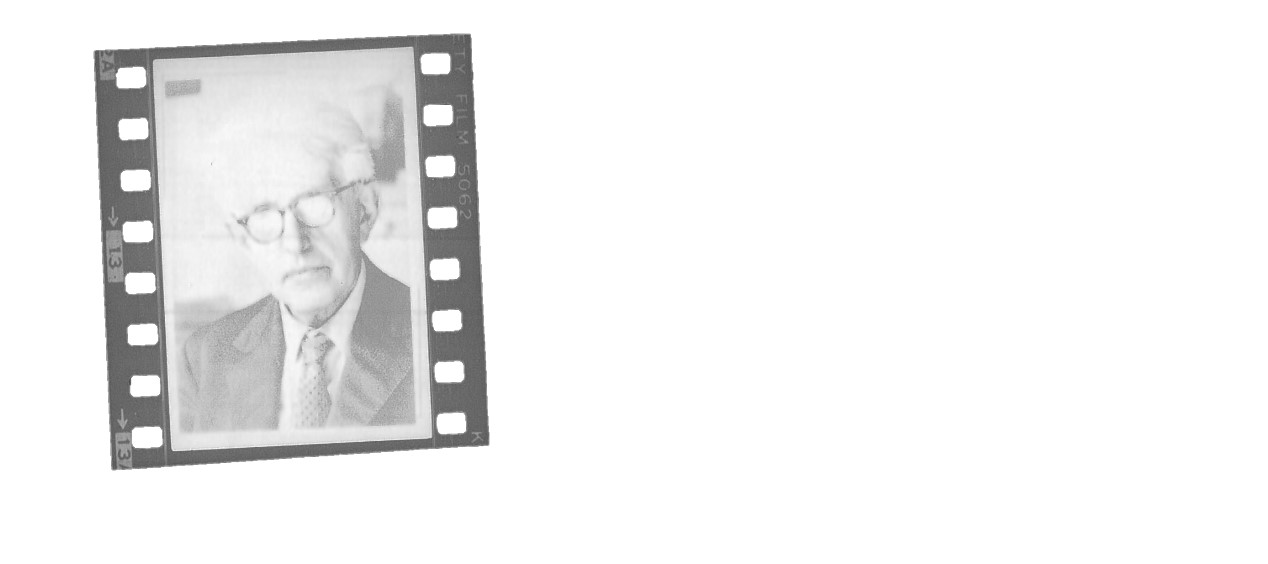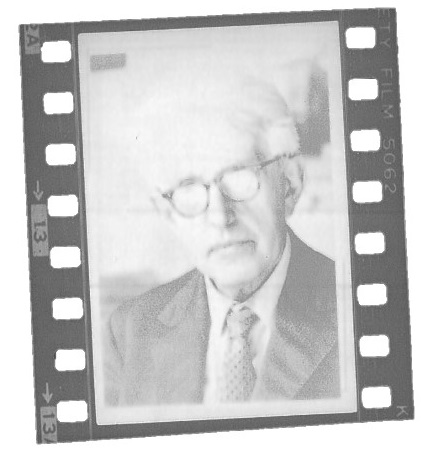cassirer in context

HEINRICH WALTER CASSIRER (1903-1979) was a philosopher and self-taught biblical scholar. His earliest publication was a German translation of a treatise by the late medieval scholar Nicolas de Cusa, which appears as an appendix to his father's monograph Individuum und Kosmos (1927). German and Jewish by birth, he came to the UK in the 1930s with the support of a scheme for academic refugees. He taught moral philosophy at the Universities of Glasgow and Oxford until 1960, when he retired from academia to carry out independent study in the field of biblical studies.
Classicist
As an undergraduate, Cassirer studied a mix of classics and philosophy. His Heidelberg dissertation on Aristotle's de anima was published in 1932. In it, he argued for a biological reading of Aristotle's treatise, though without seeking to present Aristotle as a wholly empirical scientist. Reviewers praised his "most commendable freedom from the tendency to read modern theories into ancient thinkers" (Ross, The Classical Review), and the clear style of argument (R.S. Journal of Philosophy).
In the final year of his life, Cassirer returned to classical texts, translating Sophocles' play Oedipus at Colonus. This work may be seen as a further articulation of the complexity of moral freedom.
Works:
Aristoteles' Schrift "Von der Seele" und ihre Stellung innerhalb der aristotelischen Philosophie. Tubingen: JCB Mohr, 1932. [HT]
Sophocles' Oedipus at Colonus. Tr. H.W. Cassirer. Translated in 1978 and published for the first time as part of the Sheffield Cassirer project, 2020.
Reluctant Kantian
Cassirer's admiration for Kant's philosophy was in part the product of his youth, "reared . . . by a father [Ernst Cassirer] who was a most distinguished scholar in that field" (G&L xiii). His Kantian studies were given further momentum by H. J. Paton, whose patronage at the Universities of Glasgow and Oxford was influential in persuading the younger Cassirer to follow his father's example.
Works:
Kant's First Critique: An appraisal of the permanent significance of Kant's Critique of Pure Reason. Muirhead Library of Philosophy. London: Allen and Unwin, 1954. [HT]
Immanuel Kant, Critique of Practical Reason. Tr. H.W. Cassirer. Milwaukee: Marquette University Press, 1998. [HT] [GB]
A commentary on Kant's Critique of Judgment. London: Methuen, 1938. [HT]
Also a translation consultant on:
H.J. Paton, Kant's Metaphysic of Experience: A commentary on the first half of the Kritik der Reinen Vernunft. Muirhead Library of Philosophy. London: Allen and Unwin, 1936. [IA]
Pauline convert
Despite his respect for Kant's thinking, Cassirer was dissatisfied with the philosopher's account of moral freedom. At age 49, holidaying with friends, he decided to apply his Greek skills to reading Paul's New Testament letters. Finding Paul's attention to spiritual and emotional matters compelling, Cassirer documented his reaction and produced a complete New Testament translation so that others might learn from his encounters with Kant and Paul.
Works:
Grace and Law: St. Paul, Kant, and the Hebrew Prophets. Grand Rapids, Mich.: Eerdmans; and Edinburgh: Handsel Press, 1988. [HT]
God's New Covenant: A New Testament Translation. Grand Rapids, Mich.: Eerdmans, 1989. [IA]
Some aspects of St Paul's Personality: An address delivered to ordained priests in the Church of England. Date unknown.* Circulated in typed manuscript. 7pp.
*On a typed mastercopy, a note reading "c. 1958." has been masked with correction fluid. The event in question could not have predated 1954, and seems likely to have antedated Cassirer's introduction to his amanuensis (RW) in 1963.
Spiritual and Emotional Categories: an analysis of Paul's letters. Multiple drafts and collations, handwritten and typed, in English with Greek quotations. Facsimile edition published for the first time as part of the Digital Cassirer Collection (2021).
